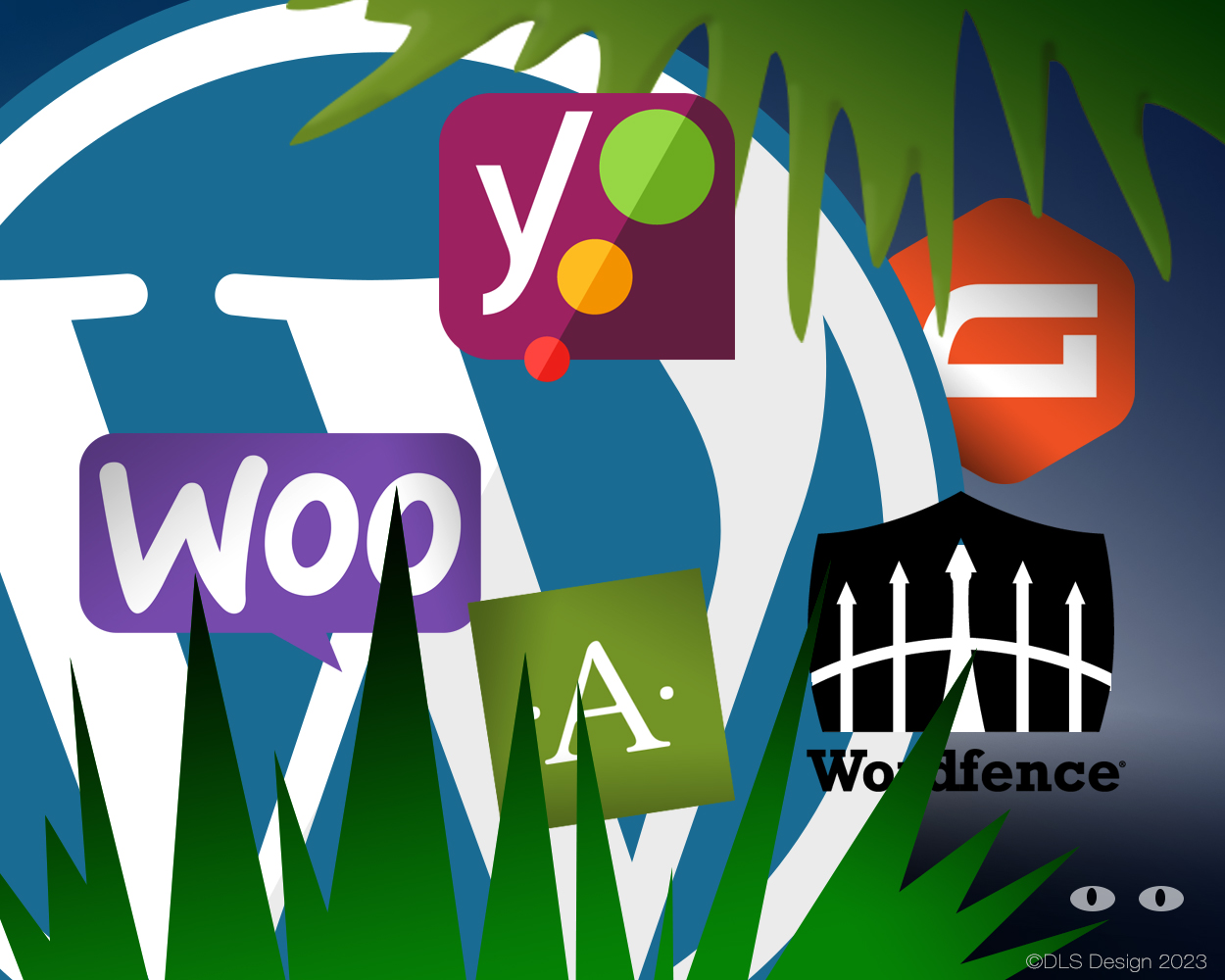Too many plugins make your website harder to manage, can slow down your website, and can create conflicts and security risks.
WordPress is offered to the public for free, and it lets anyone, from a beginner, to an experienced developer, create a good website. As a product, it’s offered “as is”, and contains a number of useful functions… but it doesn’t do everything. So the platform is open to outside developers to create adjuncts, called plugins in the WordPress universe. A plugin can be used to create a slide show, a contact form, add social media badges, or almost any function you need.
As web developers, we sometimes encounter a client’s old website, which we are tasked with updating. And sometimes these are not pretty. Recently we reviewed a law firm’s old site and found no less than 47 plugins! Many were inactive, and hence served no function. About half were outdated, creating a big security risk. We determined it would be better to rebuild the site from scratch; we offered the client a speedy turnaround, and delivered a site with a relatively svelte 17 plugins. And many of our recent projects clock in at 11 or under.
So, how many?
How many plugins does your website need? As with any complex system, the best way to manage a WordPress site is by keeping it lean. For plugins, there is no set rule, but a site should have only the ones you absolutely need.
You also have to be careful about the source. When considering a plugin, go to the plugins page on wordpress.org and read the description. Is it the best one to do what you want? How many people have installed it? That’s a vote of confidence that it works well. How often does the developer update it? That should let you know whether it is compatible with the newest version of WordPress, how careful the developer is, and even more important, if it has fixed any security holes discovered by hackers.
If you test several to get a particular function, keep the one that works best, and discard the others.
Which are our go-to set?
We always use one of the leading backup plugins, two for security, two for SEO and search data reporting, Classic Editor to simplify editing, and any needed for a specific function, such as Gravity Forms, as well proprietary plugins that tie in with third-party services, such as Mailchimp to connect with a client’s emailing account.
Ask us to discuss setting you up on a schedule to update plugins on a regular basis if you don’t feel you have the expertise to do this. We view all our clients’ websites daily, using iThemes Sync, which itself is a plugin. It shows you which sites’ plugins need updating, and lets you handle a number of sites remotely, from one convenient place.
Want to discuss your WordPress website or other project? Use our contact form.
Logos used in illustration are the copyrighted property of their respective owners.

